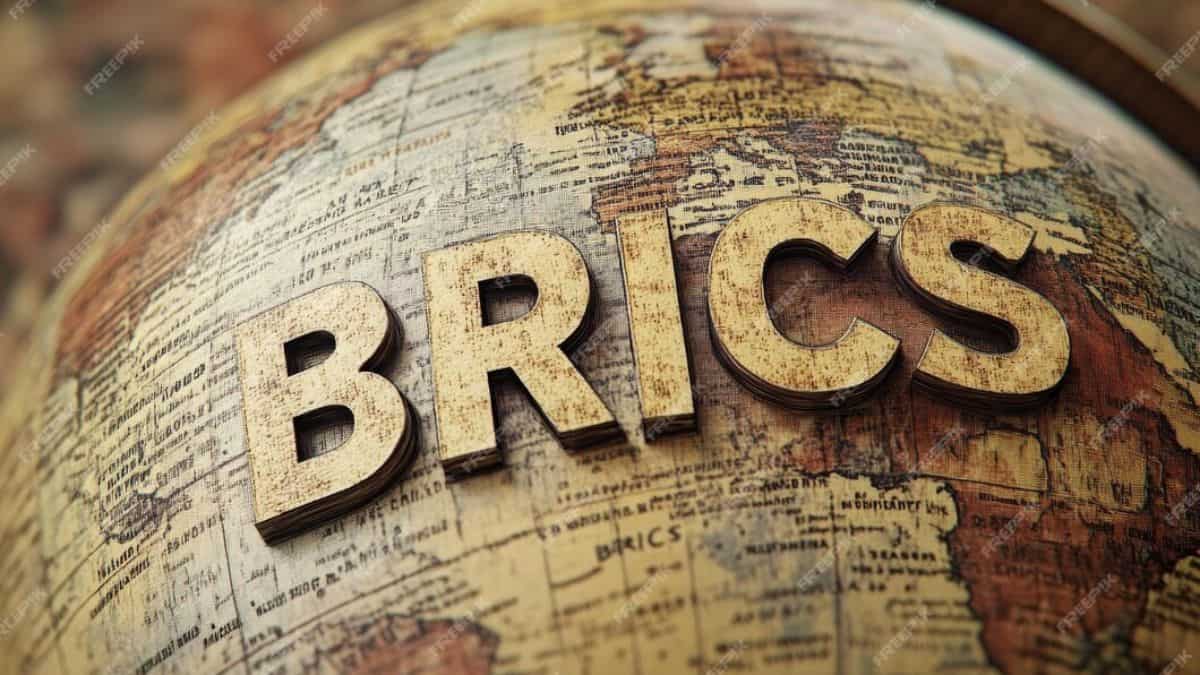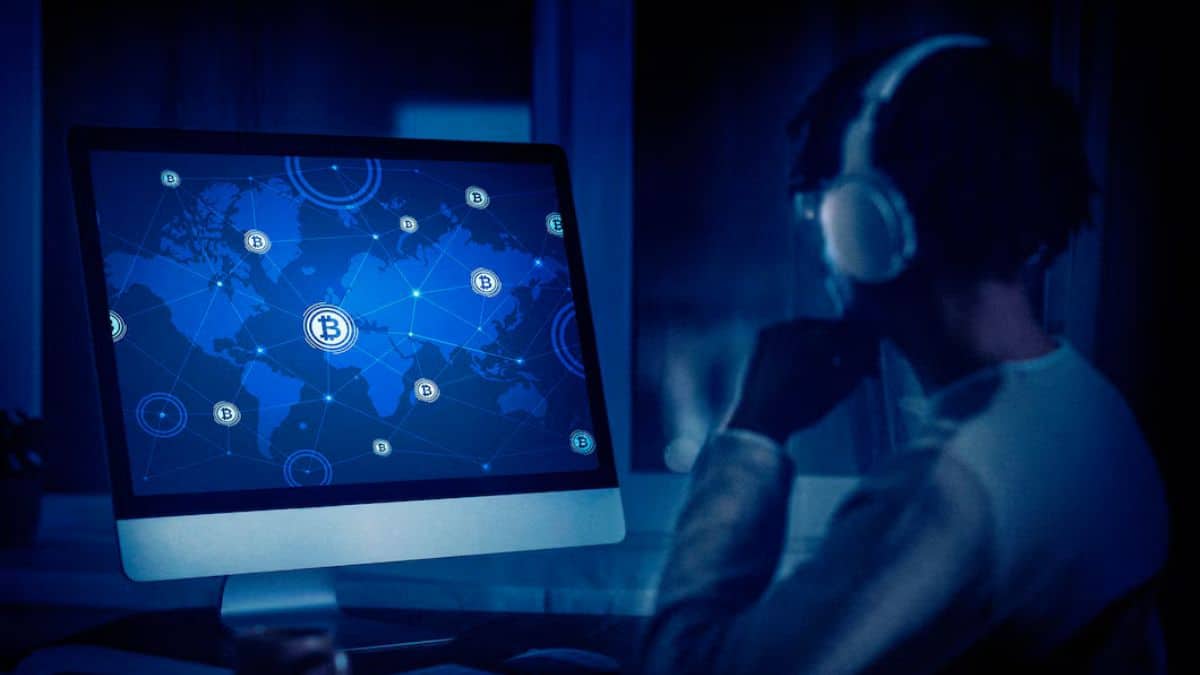NEWS
Discovering the Impact of BRICS on Global Economy and Politics

In a world continually shaped by economic and political shifts, understanding the role of BRICS is essential. Comprising five major emerging economies—Brazil, Russia, India, China, and South Africa—BRICS has grown into a formidable bloc that influences global policies and development strategies. This blog post will explore the significance of BRICS, its contributions to the global economy, and its political impact. If you’re curious about how these emerging powers are shaping the future, read on to uncover the dynamics of BRICS and its implications for the world at large.
Understanding the Origins of BRICS
The concept of BRICS originated in the early 2000s when economist Jim O’Neill first introduced the term to describe the potential power shift in global economic dominance. Initially excluding South Africa, the group was referred to as BRIC, signifying the rapidly increasing influence of Brazil, Russia, India, and China. South Africa was later added in 2010, broadening the bloc’s geographic and economic diversity. By analyzing the inception of BRICS and its evolution, we can gain insights into its strategic goals and ambitions on the world stage.
Economic Significance of BRICS Nations
BRICS nations collectively represent more than 40% of the world’s population and account for over 25% of global GDP. These statistics alone highlight the economic clout that BRICS wields in international markets. Together, these countries contribute significantly to global trade and investment flows, serving as key drivers of economic growth. By pooling their resources and leveraging their diverse strengths, BRICS nations aim to reshape the global economic landscape, offering alternative perspectives and solutions to longstanding financial challenges.
The Political Influence of BRICS on the World Stage
Beyond economics, BRICS exerts substantial political influence in international affairs. Member countries advocate for a more equitable global governance structure, challenging the existing dominance of Western powers. Through annual summits, joint declarations, and cooperative initiatives, BRICS seeks to promote multilateralism and foster collaboration among emerging and developing economies. By examining the political impact of BRICS, we can better understand its role in shaping contemporary geopolitics and addressing pressing global issues such as climate change, security, and poverty alleviation.
Exploring the BRICS Development Bank
One of the most notable achievements of BRICS is the establishment of the BRICS Development Bank, officially known as the New Development Bank (NDB). Launched in 2014, the NDB aims to finance infrastructure and sustainable development projects in member countries and beyond. By providing an alternative to traditional lending institutions like the World Bank and the International Monetary Fund, the NDB seeks to offer more accessible financing options to emerging and developing economies. Exploring the objectives and operations of the BRICS Development Bank reveals its potential to drive growth and innovation in the global financial system.
Trade and Investment Opportunities within BRICS
The economic collaboration among BRICS nations fosters trade and investment opportunities that benefit member countries and their partners worldwide. By eliminating trade barriers and enhancing economic cooperation, BRICS aims to create a more interconnected and prosperous global economy. This collaboration extends beyond traditional sectors to include technology, energy, and healthcare, providing a platform for innovation and knowledge exchange. Understanding these trade and investment opportunities allows businesses and investors to tap into the potential of BRICS markets and expand their global reach.
Challenges Facing BRICS Countries
Despite its accomplishments, BRICS faces several challenges that could hinder its progress. Economic disparities among member nations, political tensions, and differing priorities can create obstacles to achieving cohesive goals. Additionally, external factors such as geopolitical conflicts, fluctuating commodity prices, and global economic uncertainties pose significant risks. By identifying and addressing these challenges, BRICS can strengthen its unity and continue to play a pivotal role in global affairs.
The Role of BRICS in Promoting Sustainable Development
Sustainability is a core focus for BRICS, as member countries work together to address environmental challenges and promote green growth. Through initiatives such as renewable energy projects, sustainable agriculture, and climate change mitigation, BRICS seeks to balance economic growth with ecological responsibility. Collaborative efforts in research, technology sharing, and capacity building further enhance the bloc’s potential to drive sustainable development globally. Understanding BRICS’s commitment to sustainability underscores the importance of cooperative action in creating a more resilient and inclusive world.
Cultural Exchange and Collaboration among BRICS Nations
Cultural exchange is another vital aspect of BRICS cooperation, fostering mutual understanding and strengthening ties between member countries. Through cultural festivals, educational programs, and artistic collaborations, BRICS promotes diversity and cross-cultural dialogue that enriches the lives of millions. These exchanges highlight the importance of cultural diplomacy in building trust and collaboration among nations, paving the way for continued growth and innovation in various fields.
Future Prospects for BRICS
Looking ahead, BRICS is poised to play an increasingly prominent role in global affairs. With a focus on innovation, digital transformation, and comprehensive development, BRICS aims to tackle emerging challenges and seize new opportunities. The group’s commitment to enhancing cooperation and expanding its influence suggests that BRICS will continue to shape the future of the global economy and geopolitics. Analyzing the future prospects of BRICS provides valuable insights into the evolving dynamics of international relations and the potential impact of emerging powers.
How Businesses Can Leverage BRICS for Growth
Businesses seeking growth opportunities can benefit from engaging with BRICS markets, which offer diverse consumer bases and burgeoning industries. By understanding the economic and political landscape of BRICS countries, companies can identify strategic partnerships, expand their market presence, and drive innovation. Leveraging the strengths and resources of BRICS nations enables businesses to tap into new opportunities and achieve sustained success in an increasingly interconnected world.
Conclusion
In conclusion, BRICS represents a powerful alliance of emerging economies with the potential to reshape global economic and political landscapes. By promoting multilateralism, driving sustainable development, and fostering cultural exchange, BRICS plays a crucial role in addressing the challenges and opportunities of the 21st century. For businesses and individuals alike, understanding the dynamics of BRICS offers valuable insights into the future of international relations and economic growth. With its continued efforts to enhance cooperation and expand its influence, BRICS is set to remain a key player on the world stage. Whether you’re an entrepreneur, policymaker, or global citizen, staying informed about BRICS is essential for navigating the complexities of today’s interconnected world.
NEWS
Tuning into Community Pulse The Essential Guide to Bartlesville Radio News

In an era where digital information floods our screens, local radio remains a trusted source of news for many communities. One such community is Bartlesville, where the radio serves as a vital lifeline for residents seeking timely updates and stories that shape their daily lives. This post explores the world of Bartlesville radio news, uncovering its impact, evolution, and significance in the lives of its listeners.
Our exploration will take you through the vibrant role radio news plays in Bartlesville, discuss its adaptation to modern technology, and highlight its connection to the community. We’ll also provide insights into the challenges it faces and the innovative ways it’s evolving to stay relevant. Whether you’re a resident or just curious about how local media thrives in today’s digital landscape, this guide offers a comprehensive look at what makes Bartlesville radio news an essential part of its community’s fabric.
The Heartbeat of Bartlesville
Radio news in Bartlesville is more than just a medium; it’s the heartbeat of the community. For decades, stations like KWON have been the go-to sources for news, weather, and sports. They provide residents with a sense of continuity and connection that larger networks can’t replicate. People tune in daily, forging a shared experience that brings neighbors together, whether listening from home, in their cars, or workplaces.
This local focus is crucial. Unlike national outlets, Bartlesville radio stations offer news that directly impacts the lives of their listeners. Coverage includes city council meetings, school events, and other happenings that might not make headlines elsewhere. This dedication to local content fosters a sense of belonging and unity among residents, reinforcing the importance of community-centered journalism.
Furthermore, the trust that Bartlesville residents place in their local radio stations cannot be overstated. In a world where misinformation spreads rapidly, having a reliable source of news is invaluable. Listeners appreciate the effort to provide accurate and relevant information, strengthening the bond between the stations and the community they serve.
Adapting to Modern Trends
Despite the rise of digital media, Bartlesville radio news has successfully adapted to modern trends without sacrificing its core mission. Many stations now offer live streaming and podcasts, allowing listeners to access content on-the-go. This flexibility ensures that radio news remains accessible to today’s tech-savvy audience, while still reaching those who prefer traditional listening methods.
In addition to technological advancements, social media has become an integral part of the radio news landscape. Stations use platforms like Facebook and Twitter to engage with their audience, share breaking news, and gather feedback. This interaction enhances the listener experience, providing a space for community dialogue and fostering an even stronger connection between the stations and their audience.
Moreover, Bartlesville radio stations have embraced multimedia content to enrich their storytelling. By incorporating videos, photos, and interactive elements, they offer a more dynamic and engaging news experience. This evolution demonstrates their commitment to staying relevant and meeting the changing needs of their audience.
Local Heroes Behind the Microphone
The success of Bartlesville radio news can be attributed to the dedicated individuals behind the microphone. These local journalists and hosts are deeply rooted in the community, often attending events and building relationships with residents. Their passion for storytelling and commitment to accuracy ensure that listeners receive news that is both informative and trustworthy.
These local heroes wear many hats, often serving as reporters, editors, and on-air personalities. This versatility allows them to deliver comprehensive coverage of local events and issues, providing listeners with a well-rounded perspective. Their firsthand knowledge of the community adds depth and authenticity to their reporting, setting them apart from larger, more impersonal media outlets.
Furthermore, the personal connections these journalists have with their audience create a unique bond. Listeners feel a sense of familiarity with their favorite hosts, who often become like friends or family. This relationship fosters loyalty and trust, ensuring that Bartlesville radio news remains a staple in the lives of its residents.
Challenges in a Digital World
While Bartlesville radio news has successfully adapted to many modern trends, it still faces challenges in today’s digital world. Competition from online news sources is fierce, with many people turning to their devices for instant updates. This shift in consumption habits poses a threat to traditional radio news, which must continually innovate to stay relevant.
One of the biggest challenges is maintaining advertising revenue in an increasingly fragmented media landscape. With more options available for advertisers, radio stations must find creative ways to demonstrate their value and reach potential clients. This may include offering targeted advertising packages or showcasing the unique benefits of radio, such as its local focus and engaged audience.
Additionally, staffing and resources can be limited for smaller stations, making it difficult to compete with larger outlets. Bartlesville radio news must find ways to do more with less, leveraging technology and partnerships to maximize their impact. Despite these challenges, the resilience and dedication of the local radio community ensure that they continue to thrive and serve their audience effectively.
Innovations Paving the Way Forward
In response to the challenges they face, Bartlesville radio news stations are embracing innovations that pave the way forward. Collaborative partnerships with other local media outlets and organizations provide new opportunities for content sharing and cross-promotion. This collaboration strengthens the community’s media ecosystem and amplifies the reach of each participating outlet.
Crowdsourcing and citizen journalism are also playing a role in the evolution of radio news. By engaging listeners and encouraging them to contribute stories or tips, stations tap into a wealth of local knowledge and perspectives. This approach not only enriches the content but also fosters a greater sense of community involvement and ownership.
Furthermore, data-driven journalism is becoming more prevalent, with stations using analytics to better understand their audience and tailor content accordingly. By leveraging data, Bartlesville radio news can deliver more relevant and engaging stories, enhancing the listener experience and ensuring they remain a trusted source of information.
A Hub for Community Engagement
Bartlesville radio news serves as a hub for community engagement, facilitating dialogue and fostering connections among residents. Through call-in shows, interviews, and public service announcements, stations provide a platform for local voices to be heard. This interactive format allows listeners to share their opinions, ask questions, and participate in discussions on issues that matter to them.
Events and initiatives organized by radio stations further strengthen their role as community connectors. From fundraisers and charity drives to local talent showcases, these events bring people together and create a sense of shared purpose. By actively participating in community life, Bartlesville radio news reinforces its commitment to serving and supporting the region it covers.
These efforts also build goodwill and trust between the stations and their audience. Listeners appreciate the genuine interest and investment in their community, which in turn fosters loyalty and strengthens the bond between the stations and their listeners.
The Power of Local Storytelling
At the heart of Bartlesville radio news lies the power of local storytelling. By focusing on stories that resonate with residents, stations create a narrative that reflects the unique character and culture of the community. This emphasis on local content not only informs but also inspires, encouraging listeners to take pride in their hometown and engage with issues that impact their lives.
Local storytelling also provides a platform for diverse voices and perspectives, ensuring that all members of the community are represented. By highlighting underreported issues or marginalized groups, Bartlesville radio news fosters a more inclusive and equitable media landscape. This commitment to diversity enriches the content and strengthens the community as a whole.
Furthermore, the intimate nature of radio storytelling allows for a deeper emotional connection with the audience. Through compelling narratives and relatable characters, stations create an immersive experience that captivates listeners and leaves a lasting impression.
The Role of Radio in Crisis Communication
In times of crisis, Bartlesville radio news serves as a crucial source of information and reassurance for residents. Whether it’s severe weather, public health emergencies, or other urgent situations, local radio provides timely updates and practical advice to help keep the community safe. This reliability and accessibility make radio an indispensable tool for crisis communication.
To ensure they can respond quickly and effectively, radio stations have established strong relationships with local authorities and emergency services. These partnerships facilitate the flow of information and enable stations to provide accurate and up-to-date coverage during critical events. By working together, they help protect the community and foster a sense of unity and resilience.
The trust and familiarity that listeners have with their local radio stations also play a vital role in crisis communication. When faced with uncertainty, residents turn to the voices they know and trust for guidance and support. This relationship underscores the importance of radio as a reliable and comforting presence in challenging times.
Building a Sustainable Future
To build a sustainable future, Bartlesville radio news must continue to innovate and adapt to the changing media landscape. This includes exploring new revenue streams, such as memberships, sponsorships, and digital subscriptions, to supplement traditional advertising. By diversifying their income sources, stations can maintain financial stability and invest in quality journalism.
Furthermore, investing in technology and training is crucial to staying competitive and relevant. By equipping staff with the tools and skills needed to produce engaging multimedia content, stations can expand their reach and appeal to a broader audience. Continuous learning and adaptation will ensure that Bartlesville radio news remains a vital part of the community’s media ecosystem.
Lastly, fostering collaboration and partnerships within the local media landscape can help create a more resilient and interconnected community. By working together, stations can amplify their impact, share resources, and support each other in navigating the challenges and opportunities that lie ahead.
Conclusion
Bartlesville radio news is more than just a source of information; it’s a vital part of the community’s fabric. From local storytelling to crisis communication, radio stations play an essential role in shaping the narrative and fostering connections among residents. While challenges exist, the resilience and innovation of Bartlesville radio news ensure that it remains a trusted and valued resource for years to come.
For those interested in exploring the vibrant world of Bartlesville radio news, consider tuning in to your local station or engaging with their online content. By supporting local media, you contribute to a thriving community and help preserve the unique stories that define Bartlesville.
NEWS
Keeping Pace with Innovation How Betechit News Transforms Your Tech Awareness

In today’s rapidly evolving world, staying updated with technological advancements is no longer an option—it’s a necessity. Whether you’re a tech enthusiast, a curious learner, or a professional in the field, having access to reliable tech news is crucial. Enter Betechit News, a platform that not only delivers timely updates but also offers in-depth insights into the tech industry. This blog post will explore how Betechit News serves as an invaluable resource for those eager to stay informed and ahead in the tech world.
Why Tech News Matters More Than Ever
Technology is intertwined with almost every aspect of our lives. From the devices we use daily to groundbreaking innovations in healthcare and education, tech impacts how we live, work, and play. This makes being informed about the latest trends and developments crucial. Betechit News provides comprehensive coverage of tech advancements, ensuring you have the information needed to make informed decisions, whether you’re purchasing a new gadget or considering a career in tech.
Navigating the Digital Transformation
Digital transformation isn’t just a buzzword; it’s a reality for businesses across industries. Companies leverage technology to optimize operations, improve customer experiences, and stay competitive. Betechit News covers this topic extensively, offering insights into how organizations are adopting digital tools and strategies. Readers can learn from real-world examples, gaining an understanding of how digital transformation can benefit their own endeavors.
Exploring Cutting-edge Technologies
From artificial intelligence to blockchain, cutting-edge technologies are reshaping industries and creating new opportunities. Betechit News dives deep into these innovations, providing readers with a solid understanding of what they entail and how they impact various sectors. By exploring technologies like AI, machine learning, and quantum computing, readers can grasp their potential applications and implications, both today and in the future.
Tech Startups and Innovations
The tech startup scene is brimming with creativity and innovation. New companies emerge with disruptive ideas that challenge the status quo and push the boundaries of what’s possible. Betechit News shines a spotlight on these startups, highlighting their journeys, challenges, and successes. This coverage not only keeps readers informed about the latest entrepreneurial endeavors but also serves as inspiration for budding innovators looking to make their mark in the tech world.
The Role of Tech in Sustainability
Sustainability is at the forefront of global concerns, and technology plays a pivotal role in addressing environmental challenges. Betechit News examines how tech companies are contributing to sustainability efforts through innovative solutions. From renewable energy advancements to eco-friendly manufacturing practices, the platform showcases how technology can be a force for good, empowering readers to support and engage with sustainable initiatives.
Cybersecurity in the Digital Age
With the increasing reliance on digital technologies, cybersecurity has become a top priority for individuals and organizations alike. Betechit News provides valuable insights into the latest cybersecurity threats and measures to mitigate them. By staying informed about data breaches, ransomware attacks, and best practices for online safety, readers can protect themselves and their digital assets from potential harm.
The Intersection of Tech and Culture
Technology isn’t just about gadgets and software; it’s also about how it influences culture and society. Betechit News explores this intersection, examining how tech impacts communication, creativity, and even ethics. By understanding the cultural implications of technology, readers can engage in thoughtful discussions about its role in shaping the world we live in.
Tech Education and Skill Development
In an era where tech skills are highly sought after, education and skill development are more important than ever. Betechit News highlights educational initiatives and resources that help individuals cultivate the skills needed to thrive in the tech-driven job market. From coding bootcamps to online courses, the platform provides guidance on where and how to acquire relevant knowledge and expertise.
Women in Tech Breaking Barriers
Diversity and inclusion are critical for fostering innovation and ensuring equitable opportunities in the tech industry. Betechit News celebrates the achievements of women in tech, showcasing their contributions and the challenges they’ve overcome. By highlighting stories of female tech leaders and role models, the platform encourages more women to pursue careers in technology and break down barriers.
Consumer Tech Trends and Reviews
For consumers, keeping up with the latest tech trends and products can be overwhelming. Betechit News simplifies this process by offering honest reviews and analyses of gadgets, software, and services. Whether you’re looking for the best smartphone or evaluating smart home devices, the platform’s reviews help you make informed purchasing decisions without getting lost in technical jargon.
The Future of Work in a Tech-driven World
The way we work is changing rapidly, driven by technological advancements and shifting societal norms. Betechit News explores the future of work, examining trends such as remote work, automation, and AI-driven job roles. Readers gain insights into how these changes impact various industries and what skills and mindsets are essential for success in the evolving workplace.
Engaging with the Betechit Community
Being part of a community that shares your interests and passions enhances the learning experience. Betechit News fosters a vibrant community of tech enthusiasts, professionals, and learners. Through forums, discussions, and events, readers can engage with like-minded individuals, share ideas, and collaborate on projects. This sense of camaraderie and exchange of knowledge enriches the overall experience of staying updated with tech news.
Conclusion Paving the Way for Technological Empowerment
Betechit News is more than just a news platform; it’s a gateway to understanding and harnessing the power of technology. By covering a wide range of topics—from cutting-edge innovations to cultural shifts—Betechit News empowers readers with the knowledge they need to thrive in a tech-driven world. Whether you’re an entrepreneur, a student, or simply curious about the future, engaging with Betechit News opens doors to endless possibilities. Stay informed, stay inspired, and stay ahead with Betechit News as your trusted guide to the dynamic world of technology.
NEWS
Surging into Tomorrow’s FinTech Phenomenon with Crypto30x News

Cryptocurrency is on everybody’s lips these days, whether it’s for its groundbreaking financial possibilities or its volatility. But staying informed and making smart decisions in this fast-paced world can be daunting. Enter Crypto30x News, your comprehensive guide to navigating the exhilarating universe of digital coins and tokens. In this post, we’ll explore how Crypto30x.com serves as a beacon of knowledge and insight for both seasoned investors and novices alike.
Understanding Crypto30x News
What Sets Crypto30x Apart?
Crypto30x News is not just another crypto blog; it’s a powerhouse of information designed to keep you well ahead of the curve. Offering everything from Bitcoin updates to deep dives into the metaverse, Crypto30x delivers high-quality content aimed at demystifying cryptocurrencies.
Neutral and Objective Reporting
In a space where opinions can often be louder than facts, Crypto30x provides unbiased and factual news. By cutting through the noise, it offers readers actionable insights that help them make informed decisions amid the crypto whirlwind.
In-Depth Research and Market Reviews
Harnessing the analytical prowess of its expert team, Crypto30x goes beyond surface-level reporting. It dives deep into the mechanics of crypto, delivering detailed market reviews that reveal the nuts and bolts of this fascinating technology.
Insights into Trends and Innovations
Staying ahead of trends can be a game-changer. Crypto30x keeps you updated on the latest innovations and trends shaping the future. Whether it’s blockchain technology or new investment opportunities, they’ve got you covered.
Key Features of Crypto30x
Comprehensive Coverage
From DeFi to NFTs and everything in between, Crypto30x covers all aspects of the cryptocurrency world, ensuring that readers get a holistic view of the industry.
Guides for All Levels
Whether you’re a beginner or an expert, Crypto30x offers guides tailored to your level of expertise. Their goal is to empower everyone with the knowledge needed to thrive in this digital age.
Community Engagement
Crypto30x isn’t just about consuming content; it’s about joining a vibrant community. Subscribers get access to exclusive opportunities and can engage with fellow enthusiasts through newsletters and social media platforms.
Navigating the World of Digital Currencies
Bitcoin’s Meteoric Rise
Recent headlines like Bitcoin hitting a record $75K showcase the crypto’s unpredictable yet exhilarating nature. Crypto30x helps contextualize these developments, offering insights into how external factors like geopolitical events might influence prices.
Exploring Altcoins
Not just Bitcoin, but altcoins and meme coins are thoroughly examined, providing readers with a diverse range of opportunities and insights.
Blockchain Technology
Crypto30x also covers how blockchain technology is revolutionizing sectors beyond finance, like supply chain management and data security.
Practical Tips for Investors
Risk Management
With great opportunity comes great risk. Crypto30x emphasizes the importance of understanding volatility and the regulatory landscape, helping investors mitigate potential pitfalls.
Cybersecurity Tips
Stay safe in the digital realm with Crypto30x’s expert advice on securing your digital assets against cyber threats.
Investment Strategies
From day trading insights to long-term investment strategies, Crypto30x offers practical advice to help you maximize your returns and stay resilient in the face of market fluctuations.
Conclusion
Crypto30x News is more than just a source of information; it’s a launchpad for your financial future. By offering reliable, comprehensive, and in-depth coverage of the crypto world, Crypto30x equips you with the tools you need to succeed. Whether you’re just starting or looking to refine your strategies, Crypto30x is your trusted partner in the evolving landscape of digital finance.
To stay ahead, join the Crypto30x community today by subscribing to their newsletter and following them on social media. Let’s explore the fascinating cryptocurrency world side by side!
-

 TECHNOLOGY7 months ago
TECHNOLOGY7 months agoNavigate Mojini V3 Login Like a Pro
-

 TOPIC8 months ago
TOPIC8 months agoDiscovering Joe’s Carts: A Adventure on Wheels
-

 BLOG8 months ago
BLOG8 months agoSteve Cartisano Net Worth: A 2024 Deep Dive into His Wealth and Success
-

 BLOG9 months ago
BLOG9 months agoMyWape: A Deep Dive into the Emerging Video-Sharing Platform
-

 BLOG10 months ago
BLOG10 months agollm 申請 statement of purpose
-

 BLOG10 months ago
BLOG10 months agoModernized mona lisa: The Ultimate Guide
-

 BLOG9 months ago
BLOG9 months agoWhy Aoleonuithietke.com Is the Go-To Resource for Creative Inspiration
-

 TECHNOLOGY7 months ago
TECHNOLOGY7 months agoHow to Review and Analyze Security Camera Footage
